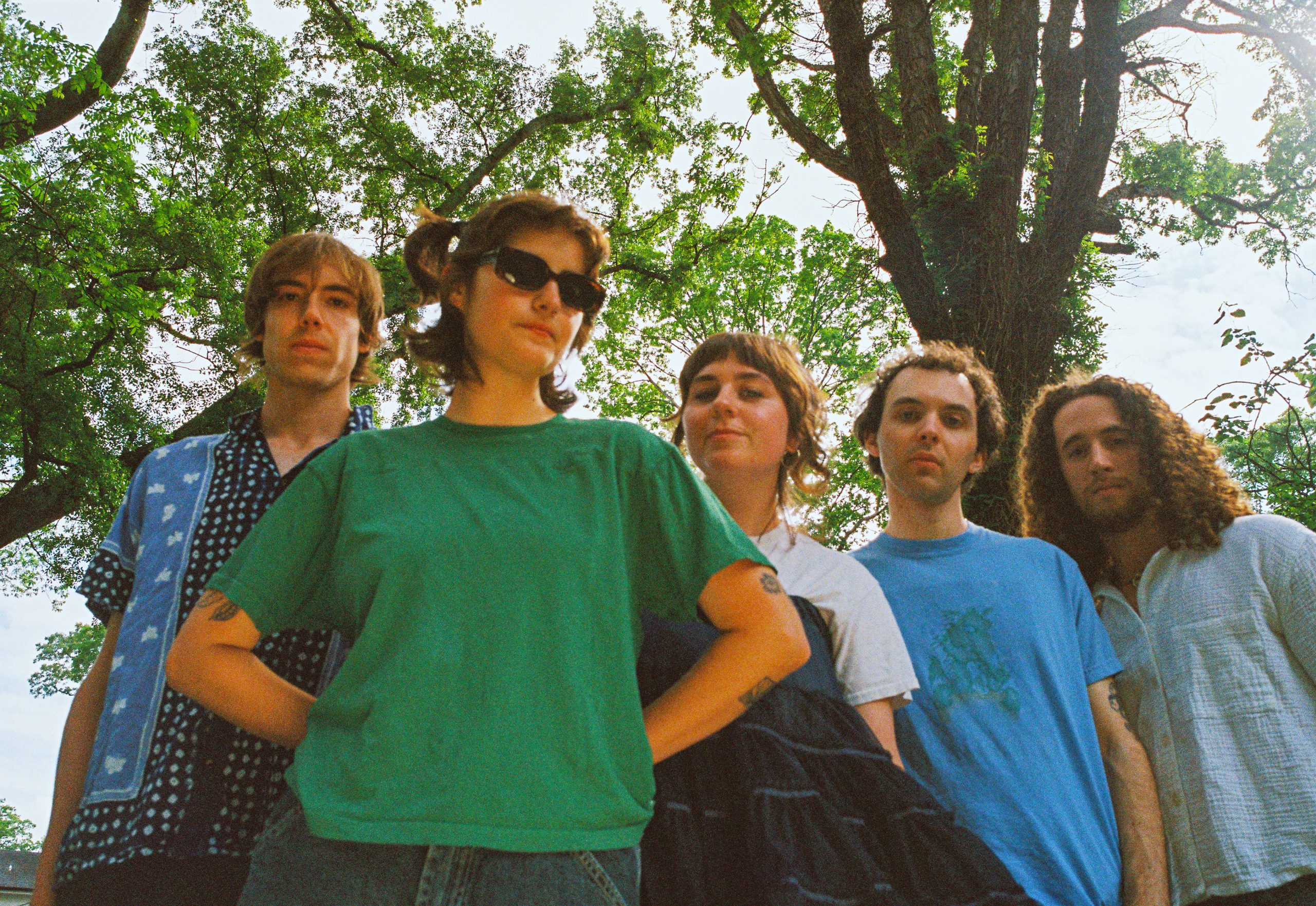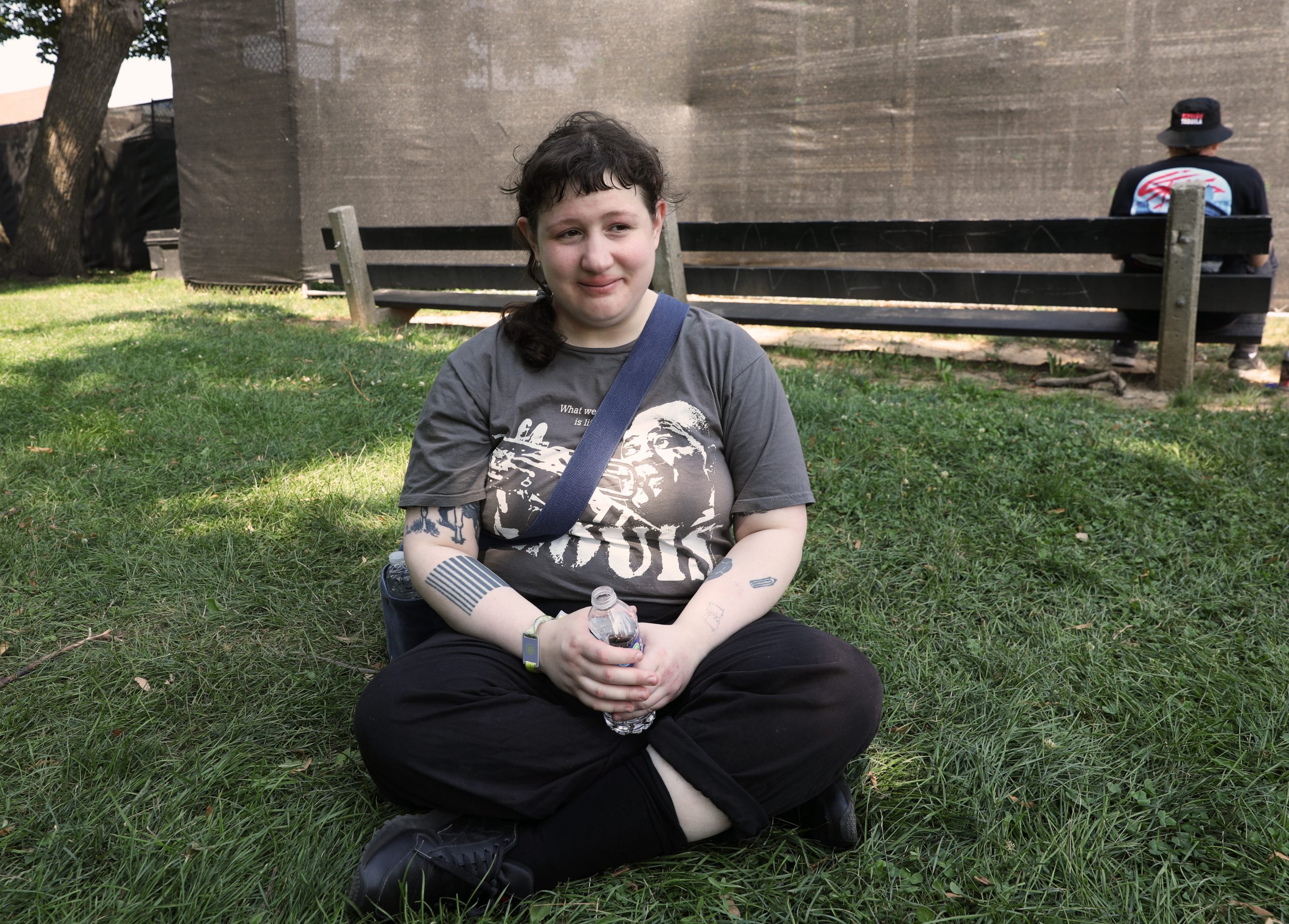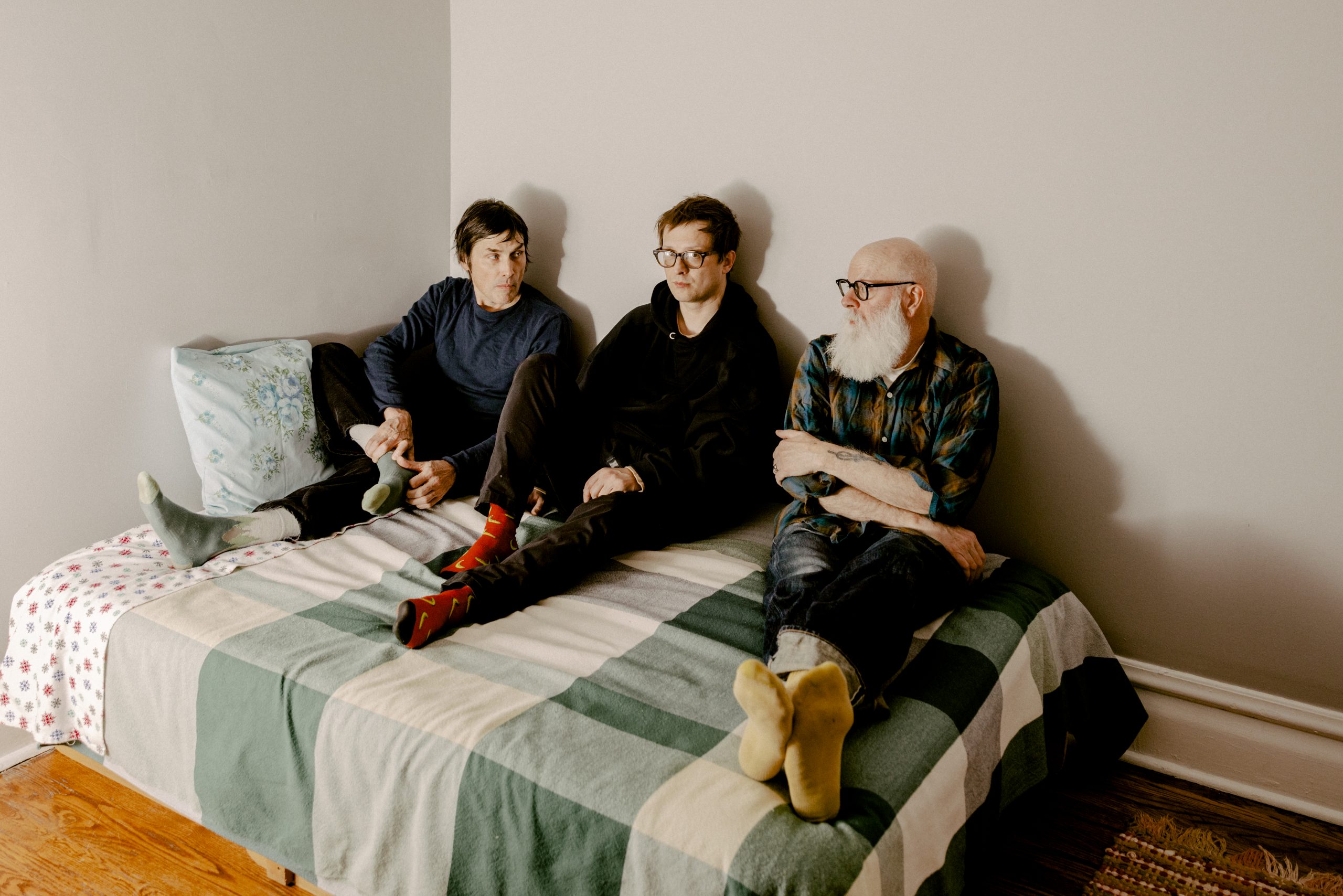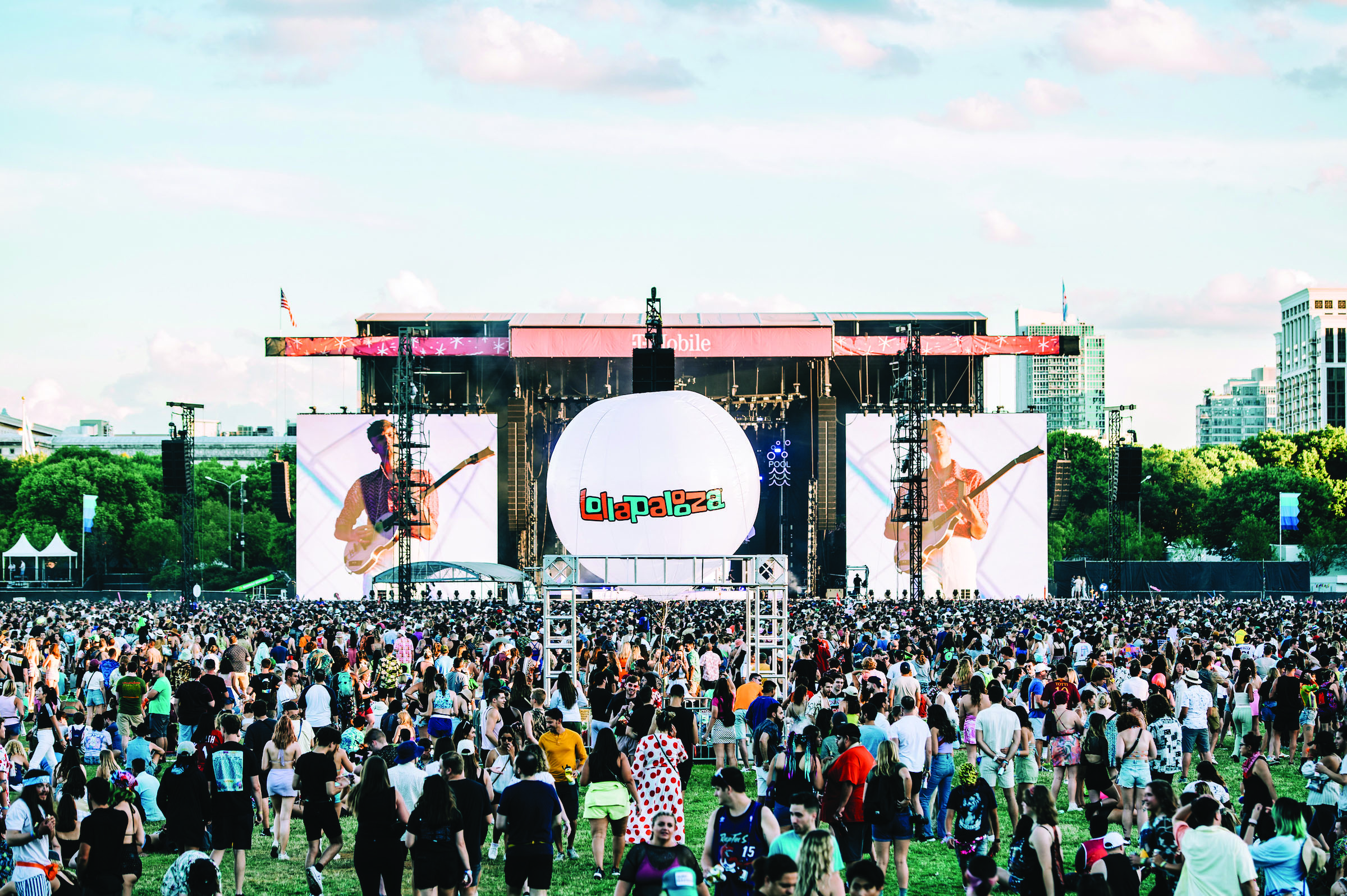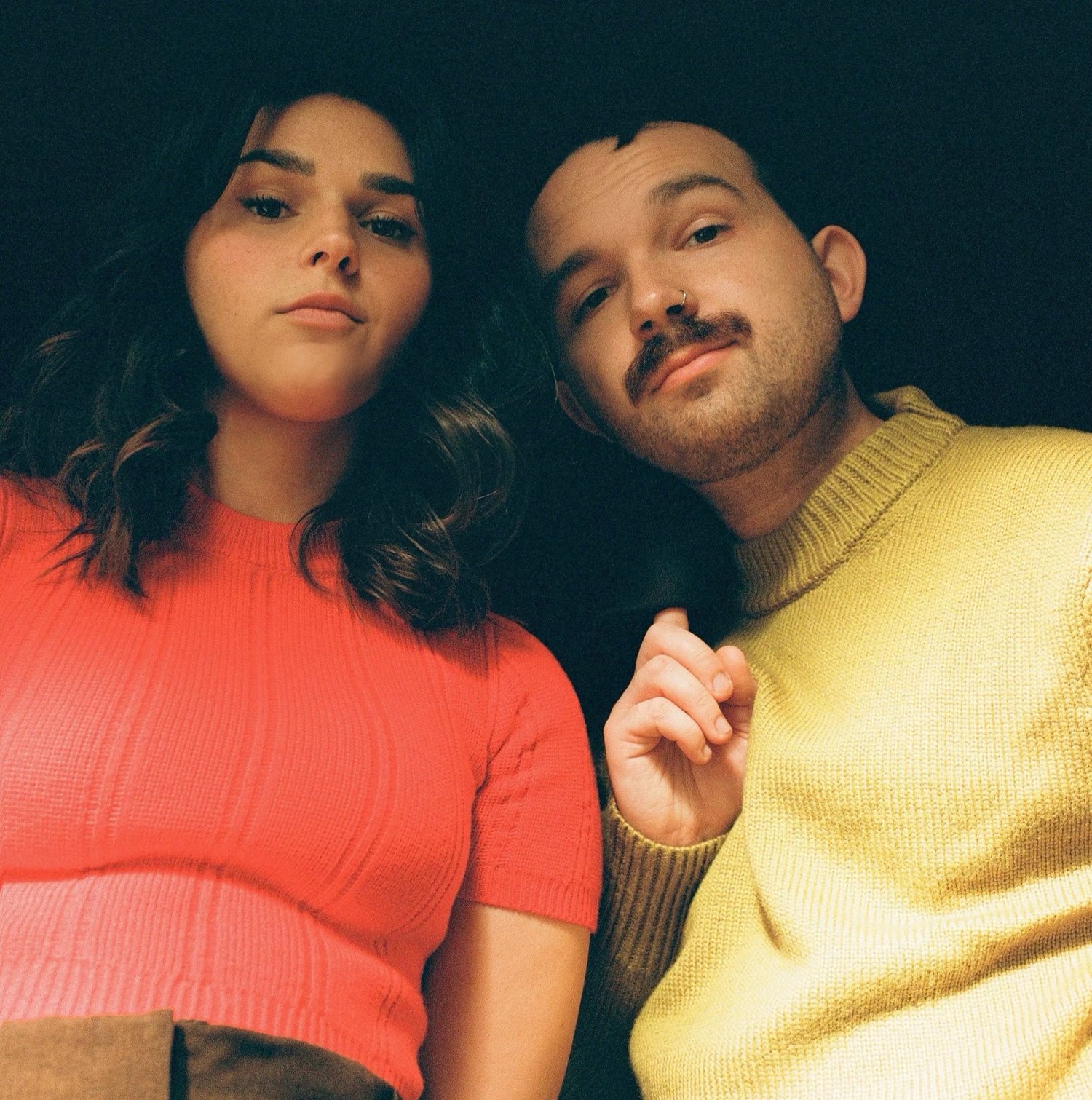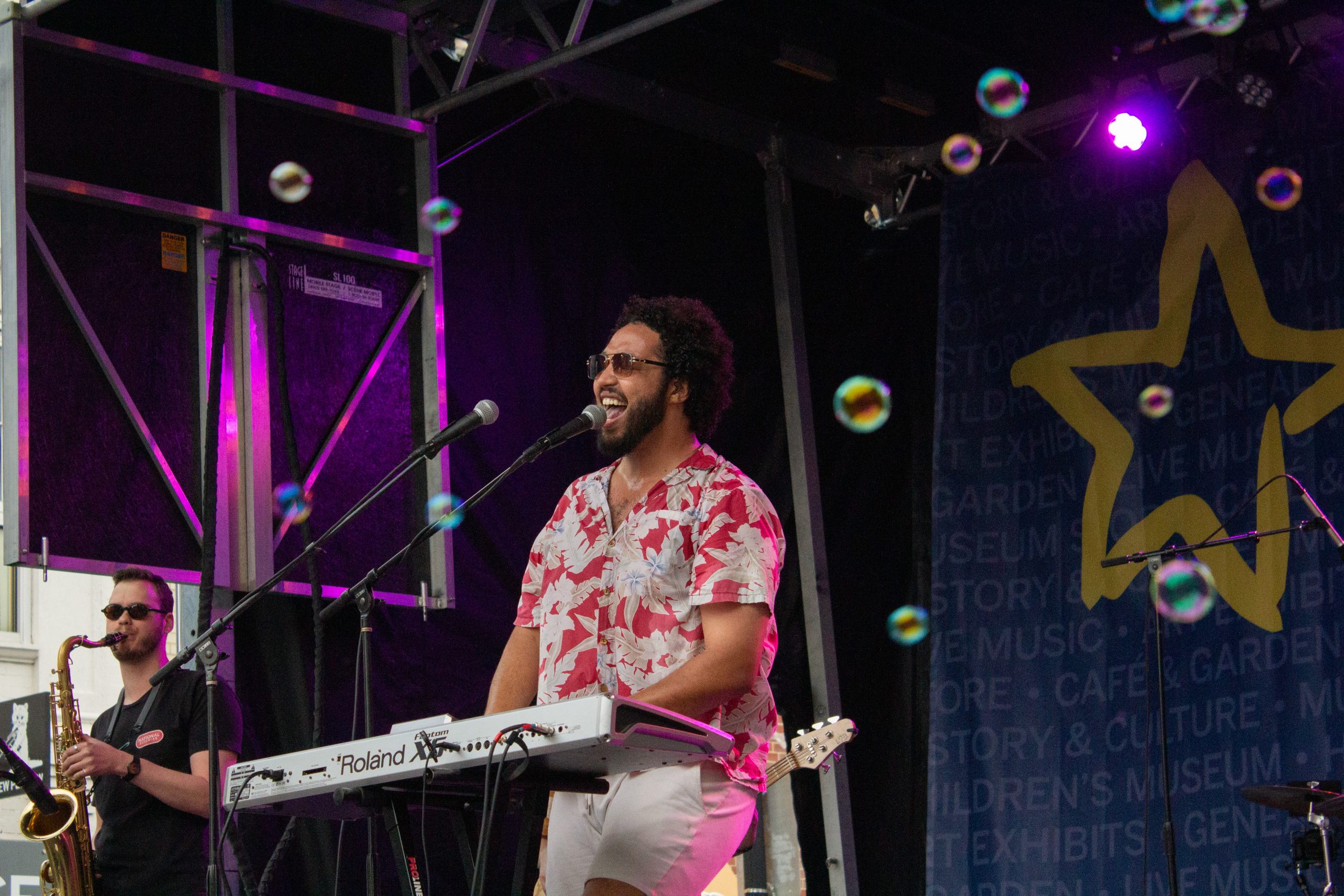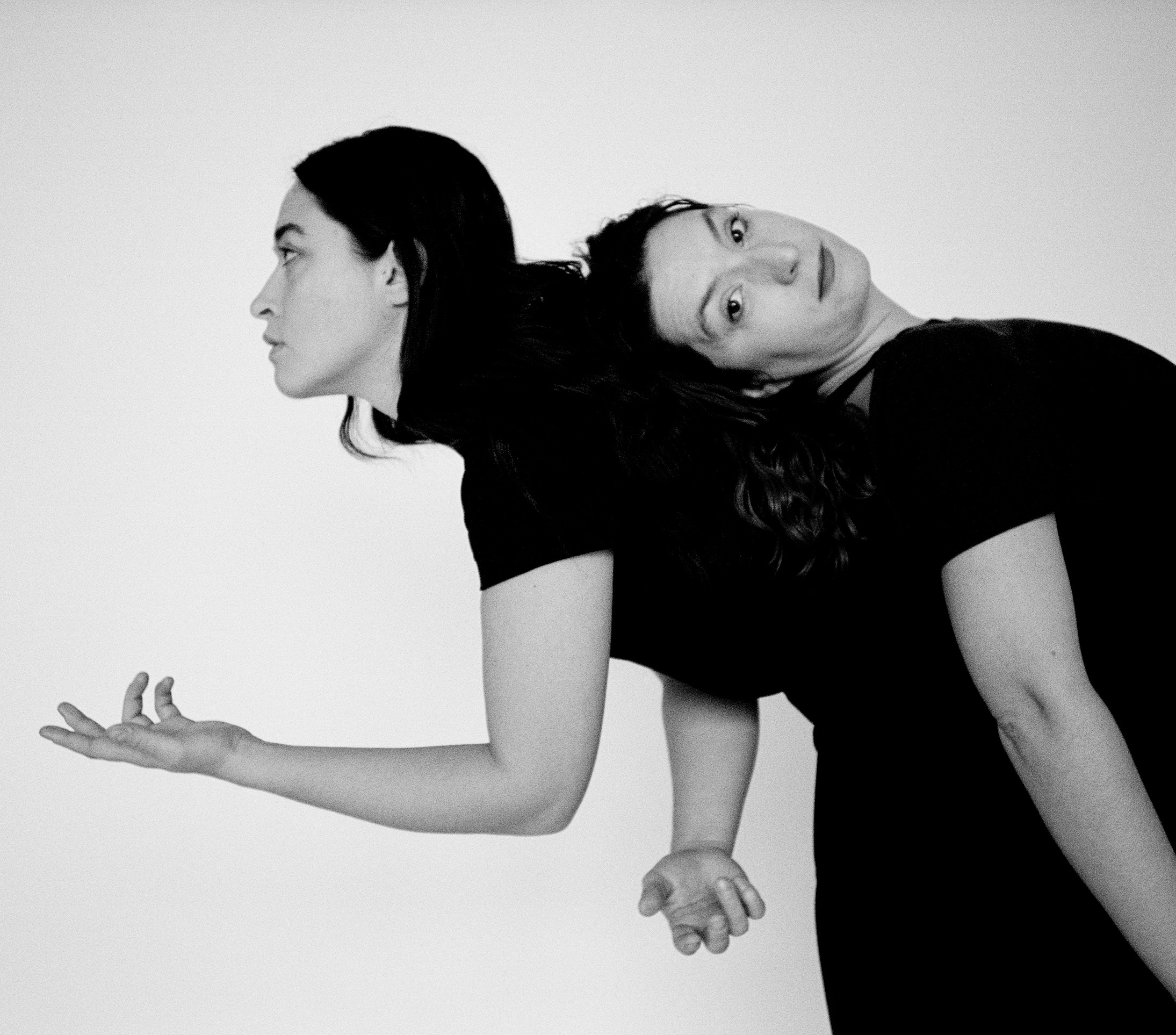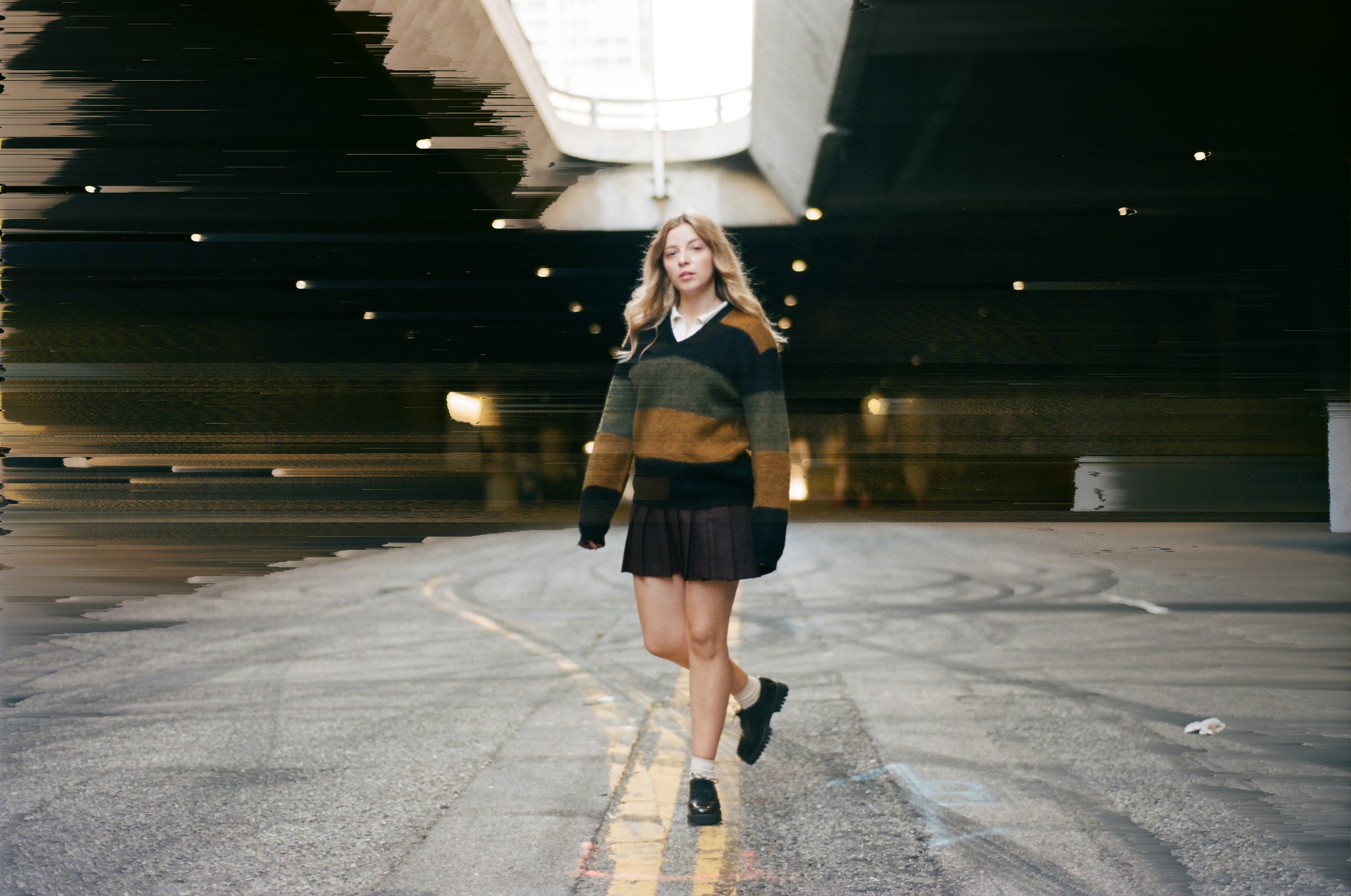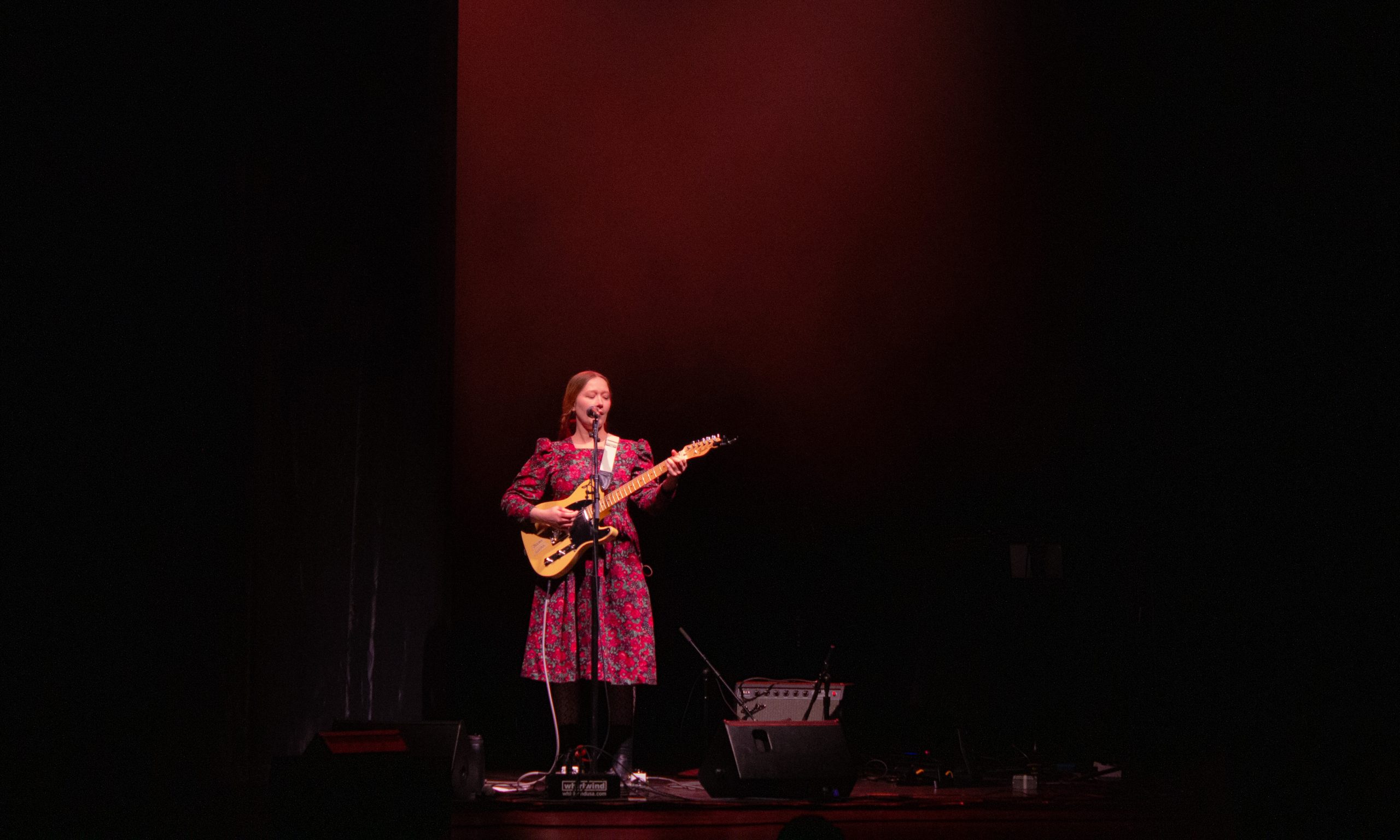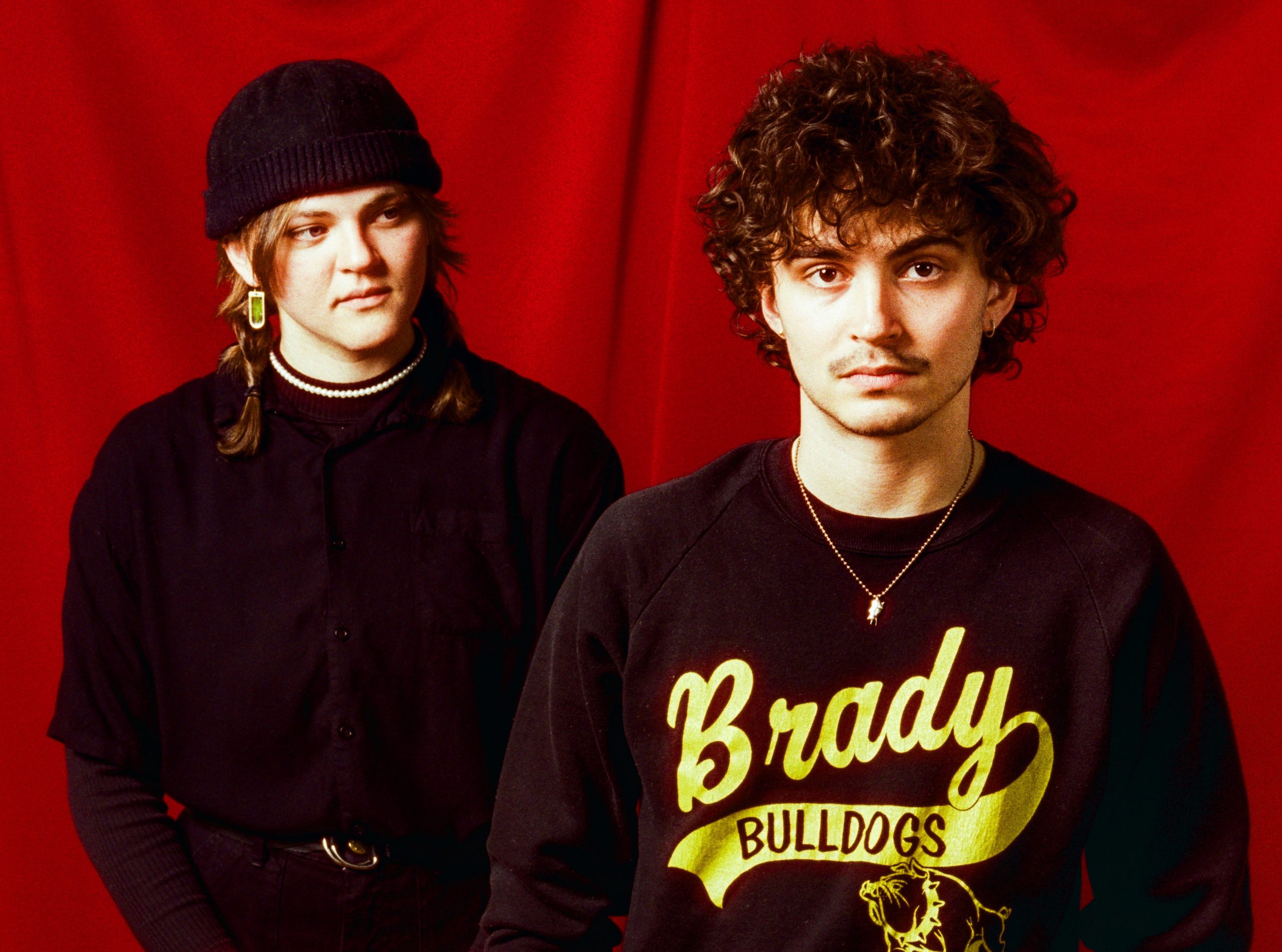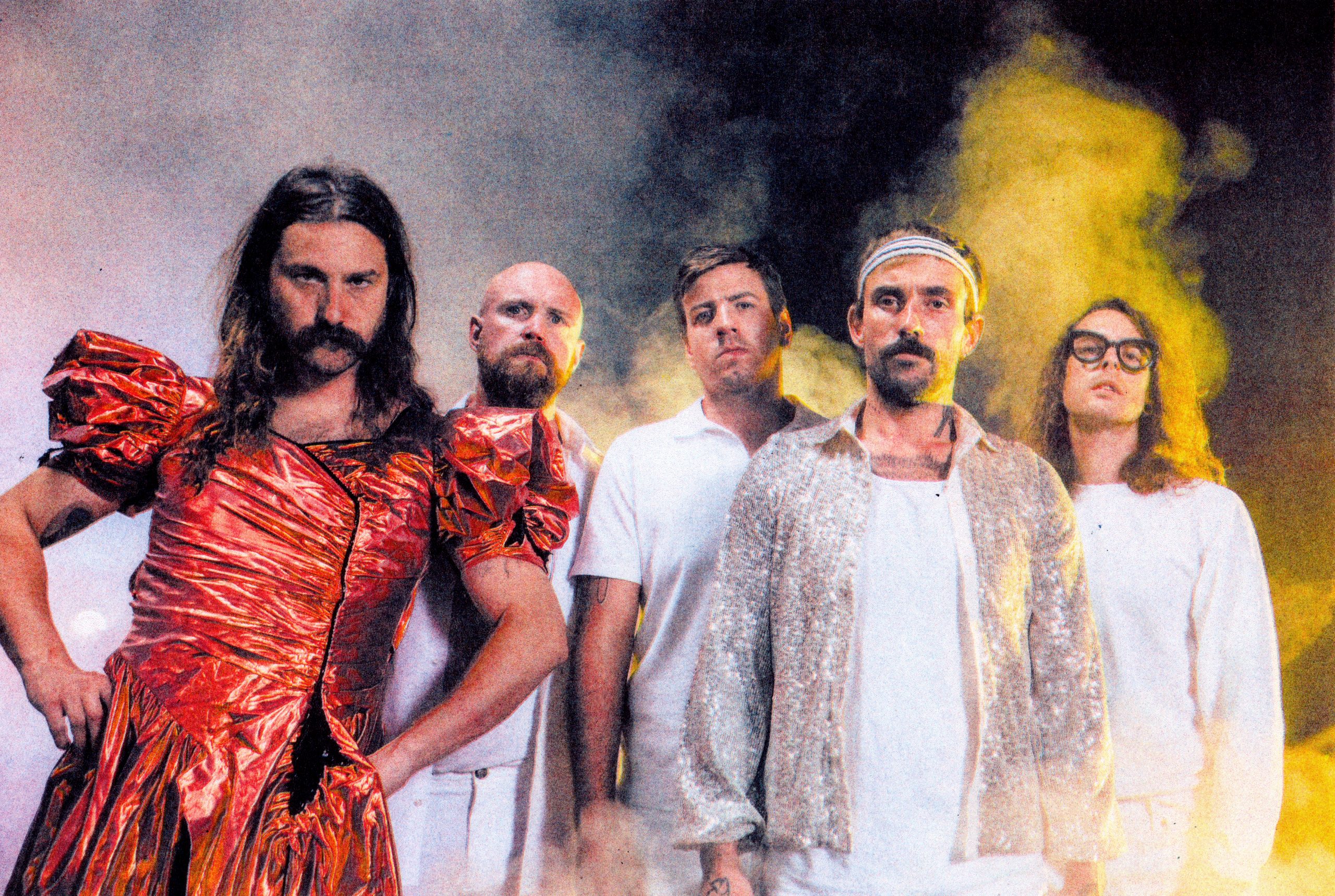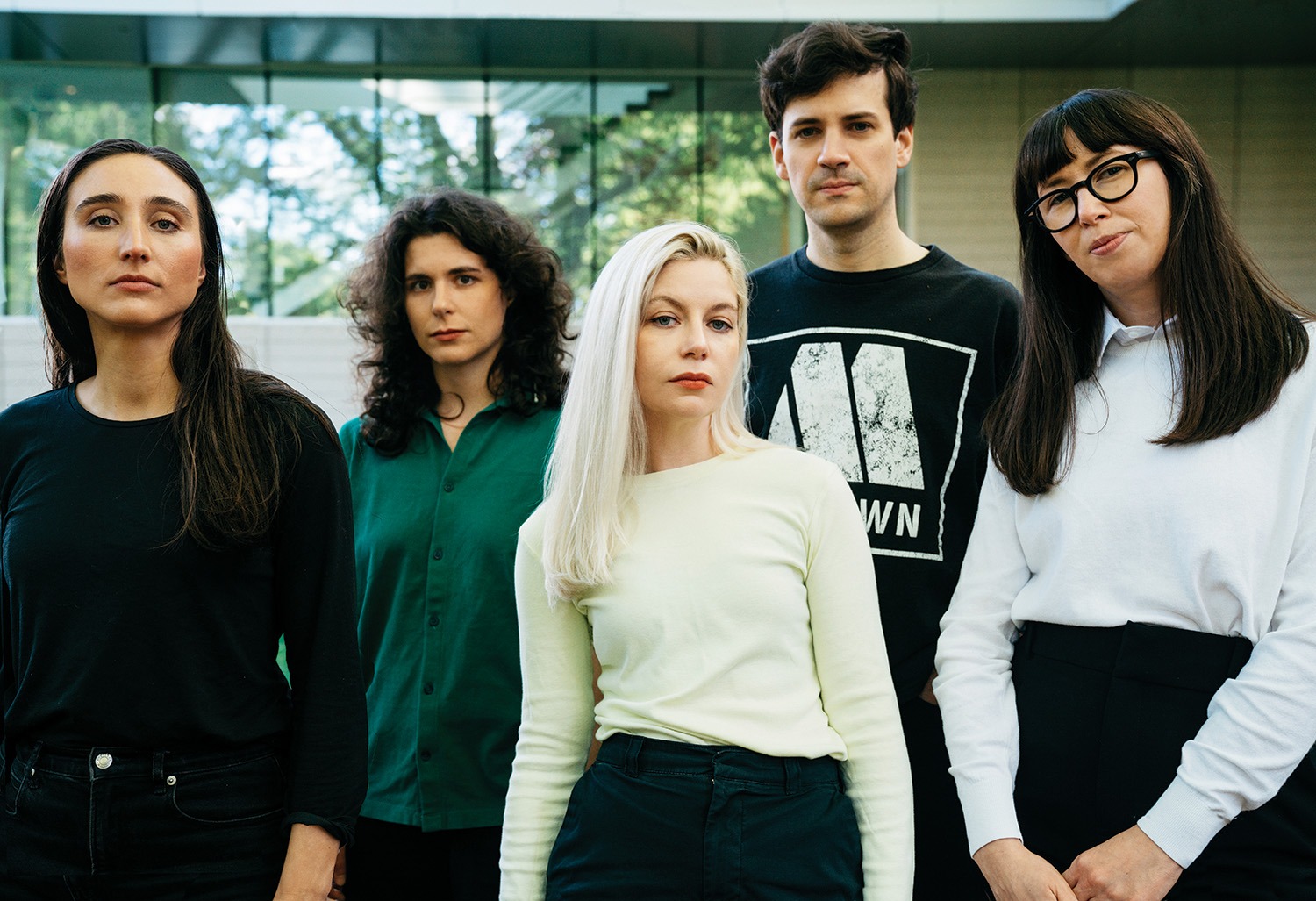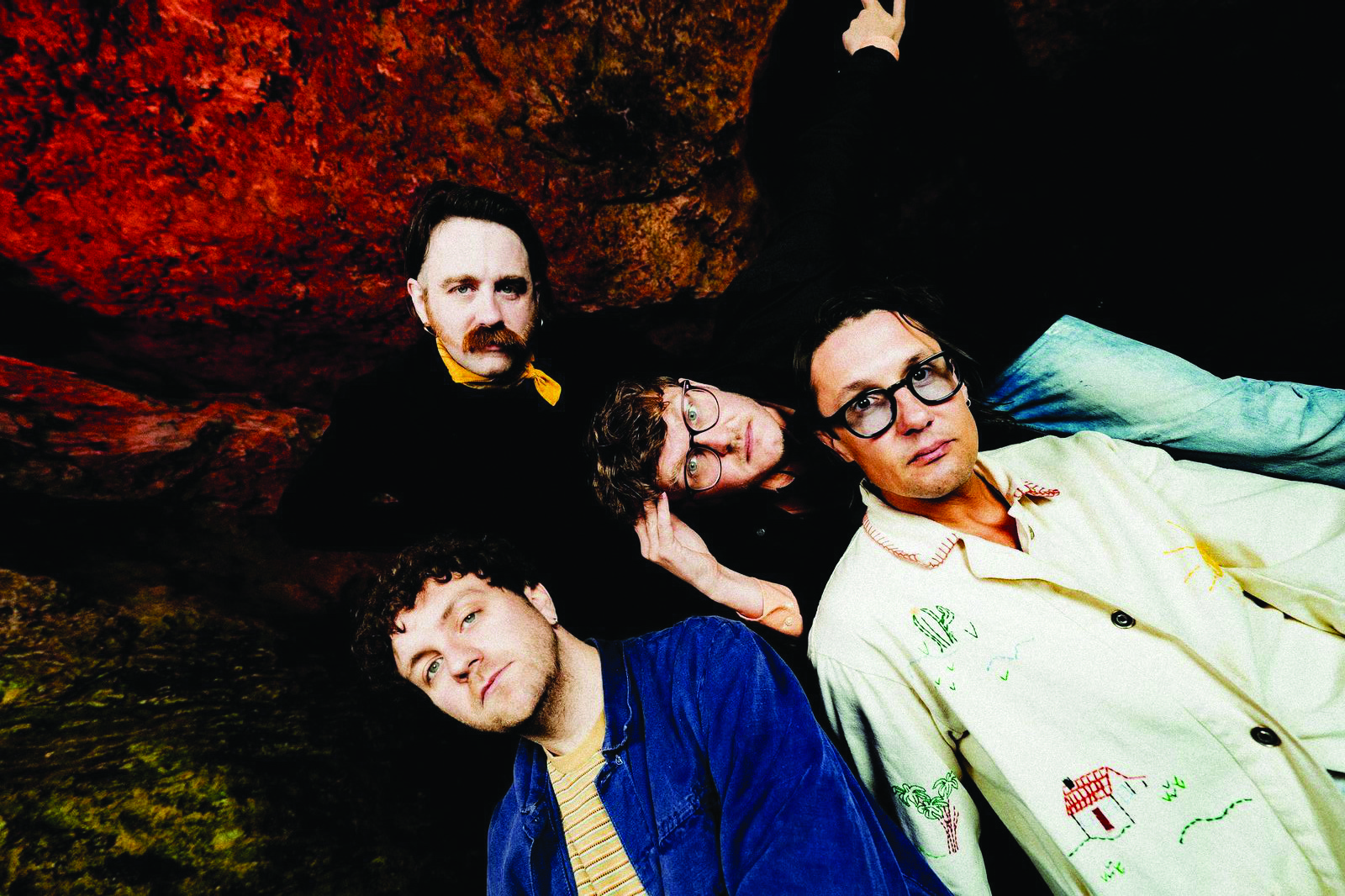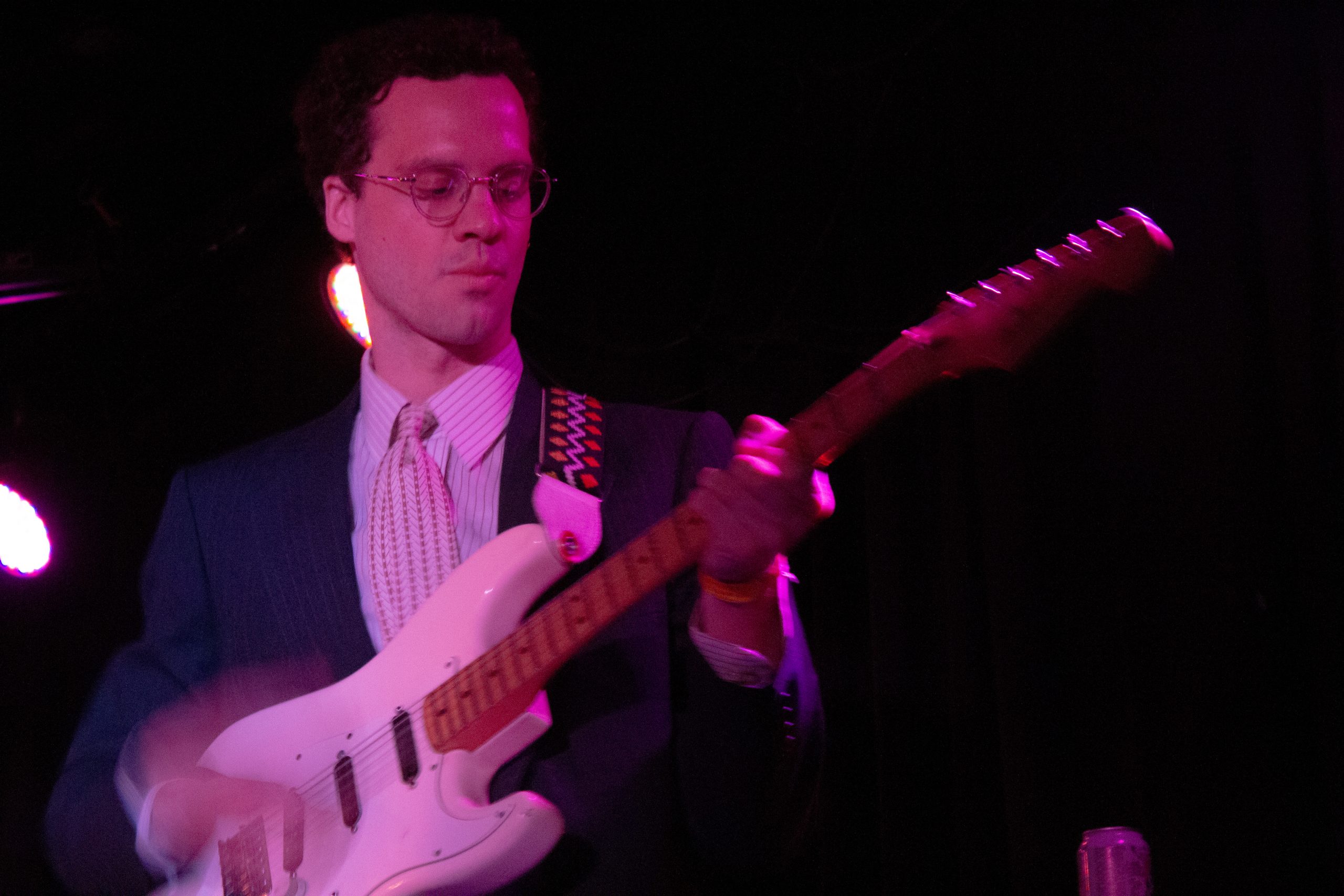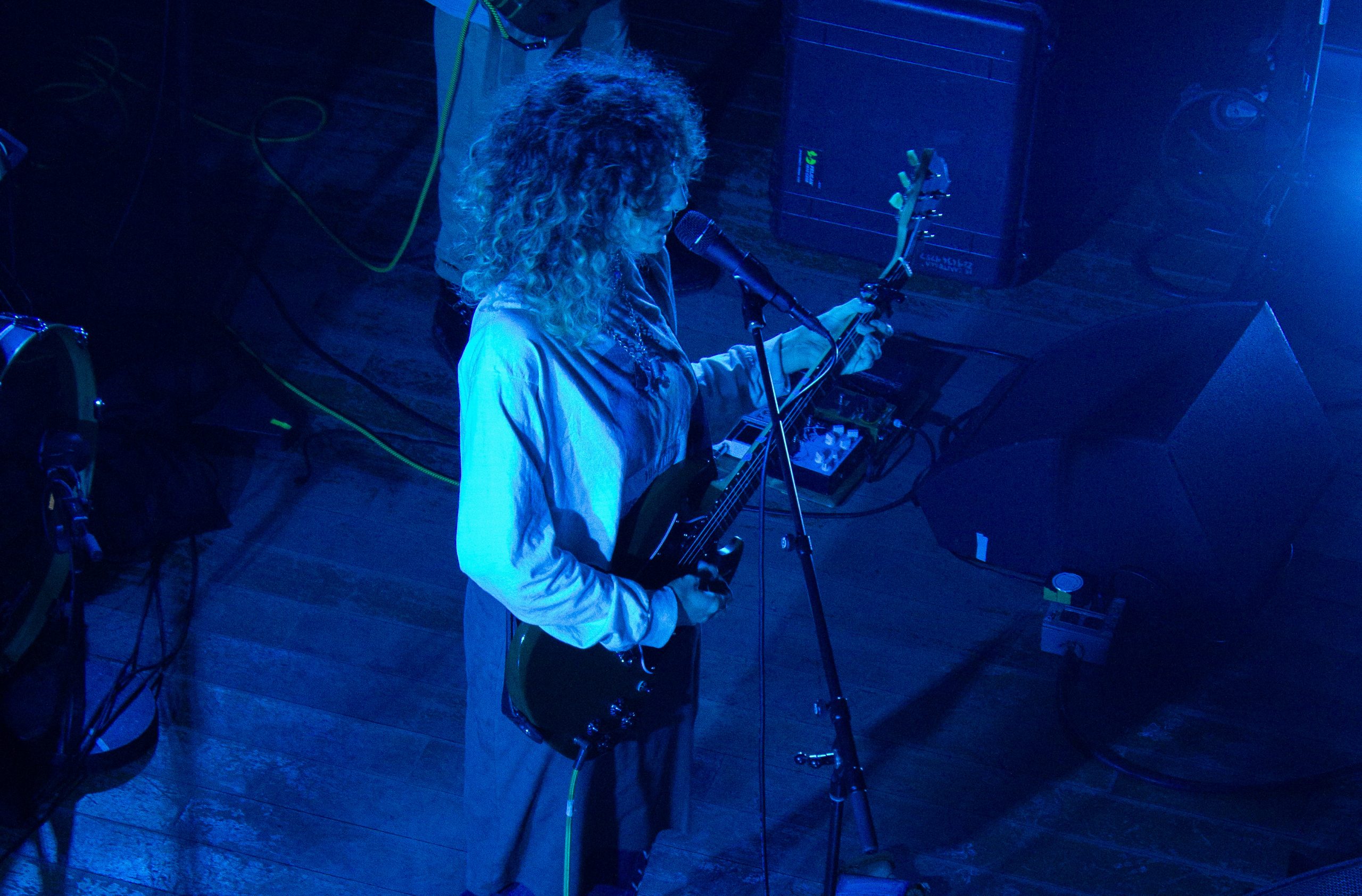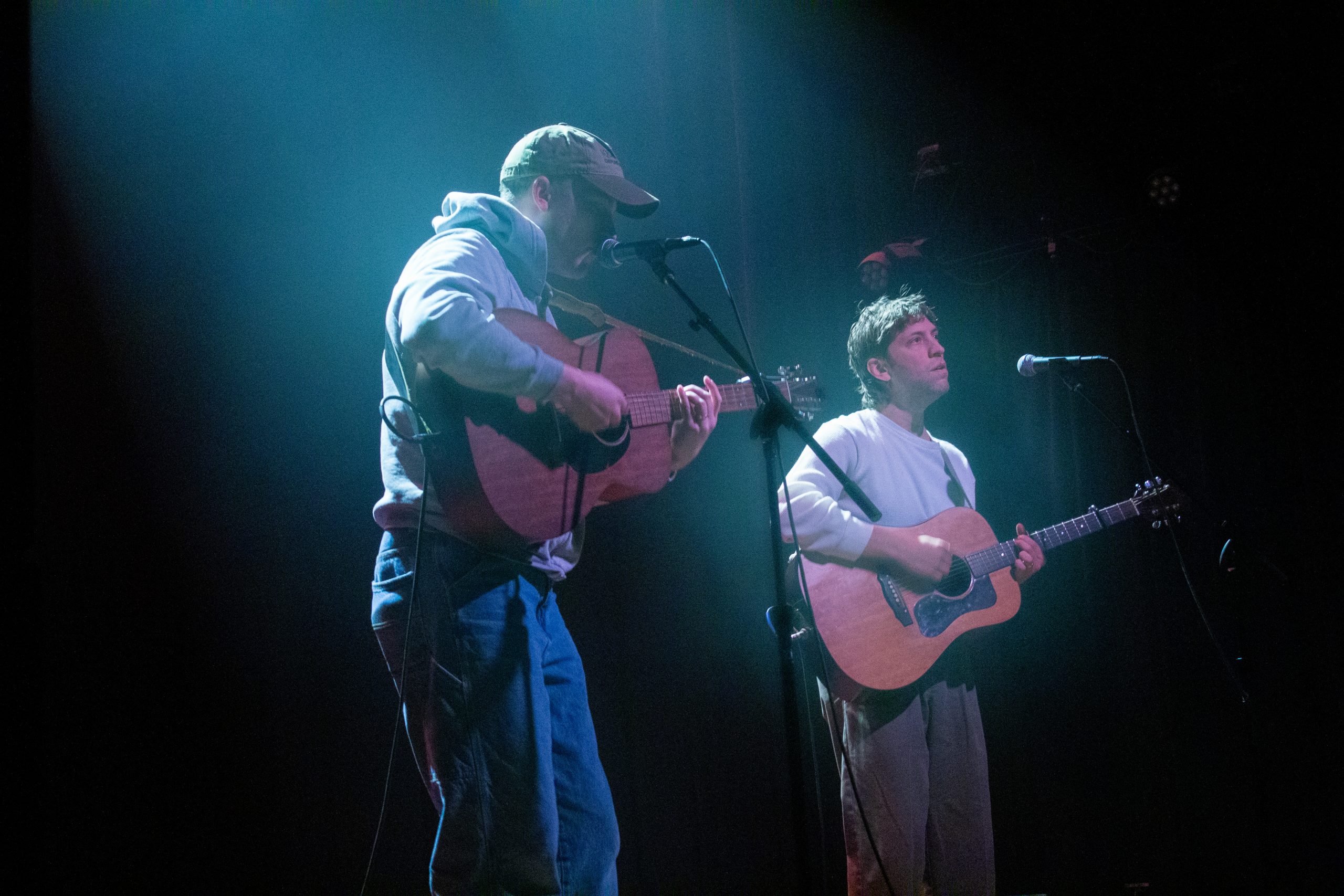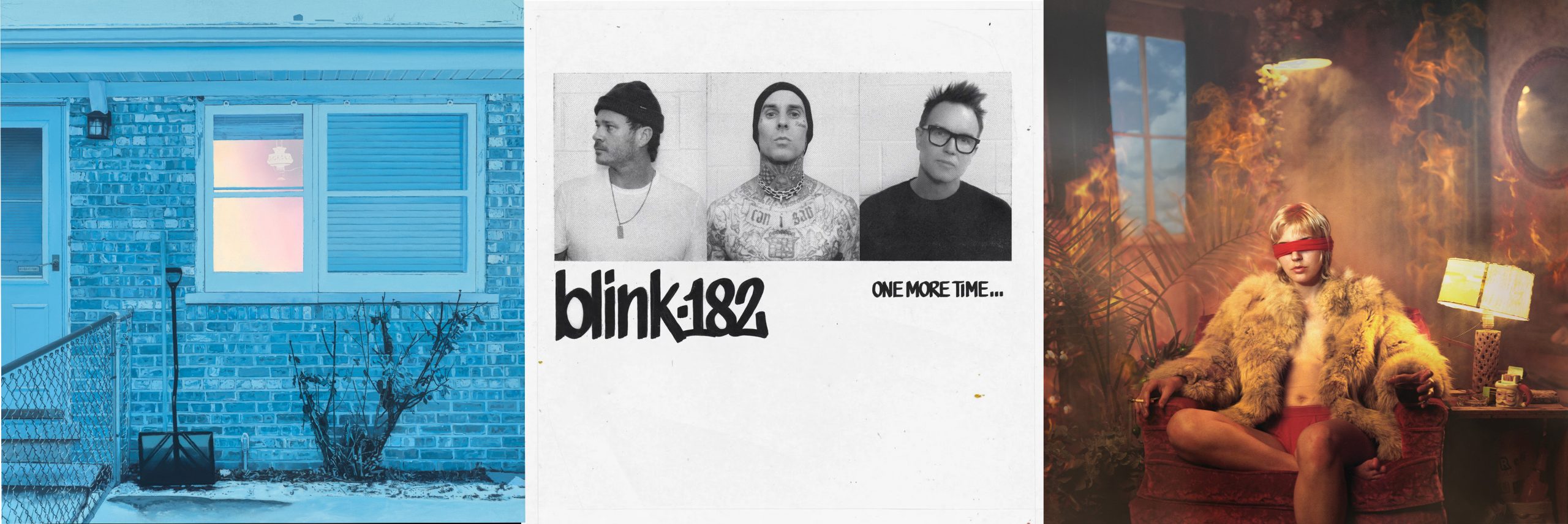Becca Mancari’s “Left Hand” Wrote Itself
The Nashville-based artist released their third studio album, "Left Hand," in August. It's a body of work that had to come out for Mancari to find their voice.
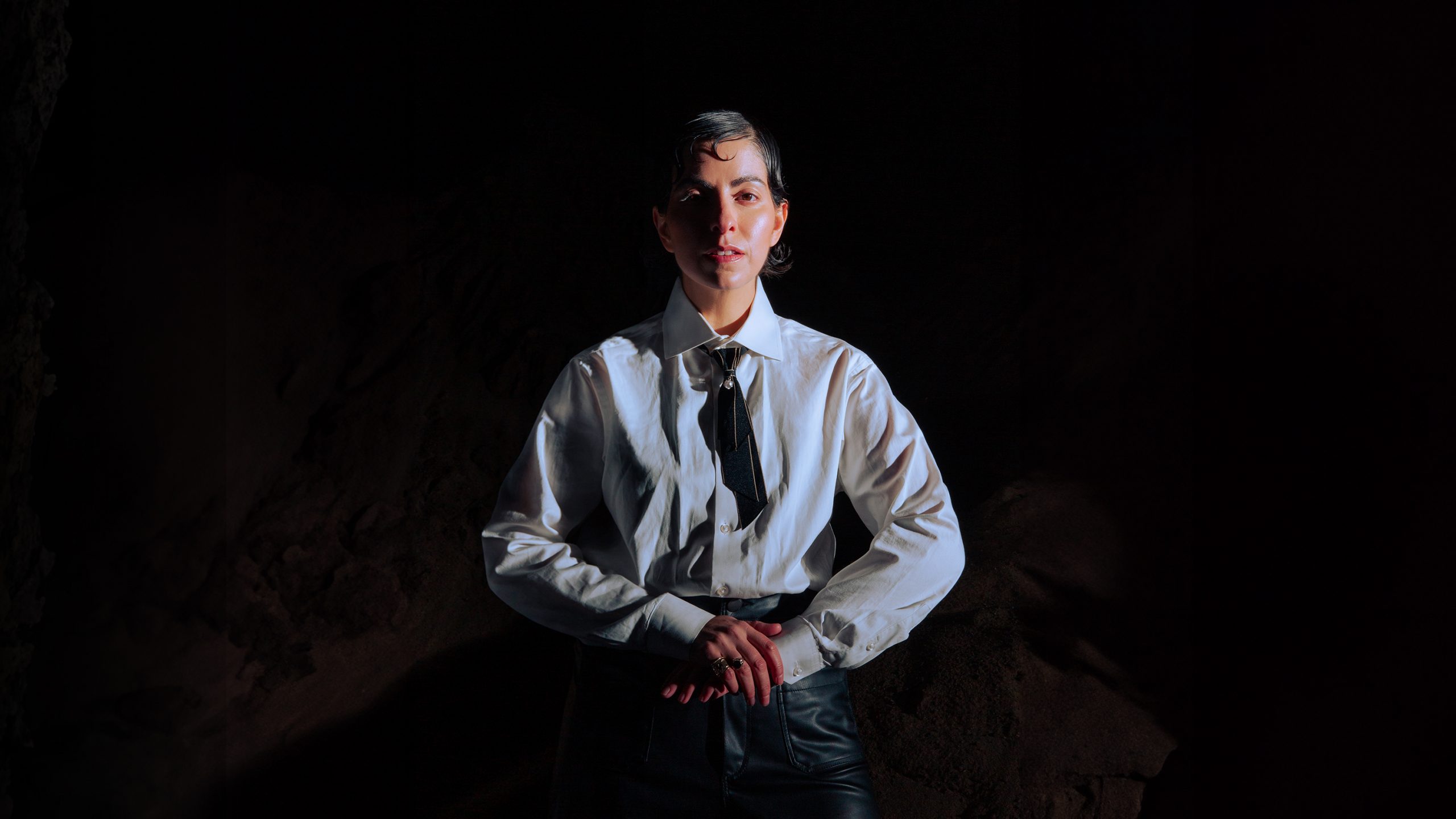
Tonight, Becca Mancari kicks off the second leg of their North American tour in Louisville, Kentucky—with a show in Chicago tomorrow—for an album that they “needed to write.”
Left Hand, which was released Aug. 25, is a love letter to Mancari themself—a declaration of queer joy and resilience, set to inviting guitar grooves and intimate lyrics.
It was written during a time Mancari was questioning whether or not they should continue a career in music. With an illness in their family, a confrontation with alcohol dependency and the need to address troubled relationships and mental health, Mancari felt like a passenger in their own life.
“This record had to happen in order for me to move forward,” Mancari says in a phone interview earlier this week. “You can feel a whole lifetime through this record.” They were excited to play songs from the album in cities across the U.S.
While addressing trauma and self-reckoning, Mancari used the time between their second studio album, The Greatest Part, to accept themself wholly and write an album that they say could never be written again. Left Hand incorporates Mancari’s indie-folk rock with a more upbeat, pop-influenced overlay. Though the album marks a period of darkness for Mancari, the music maintains a soothing, positive appeal.
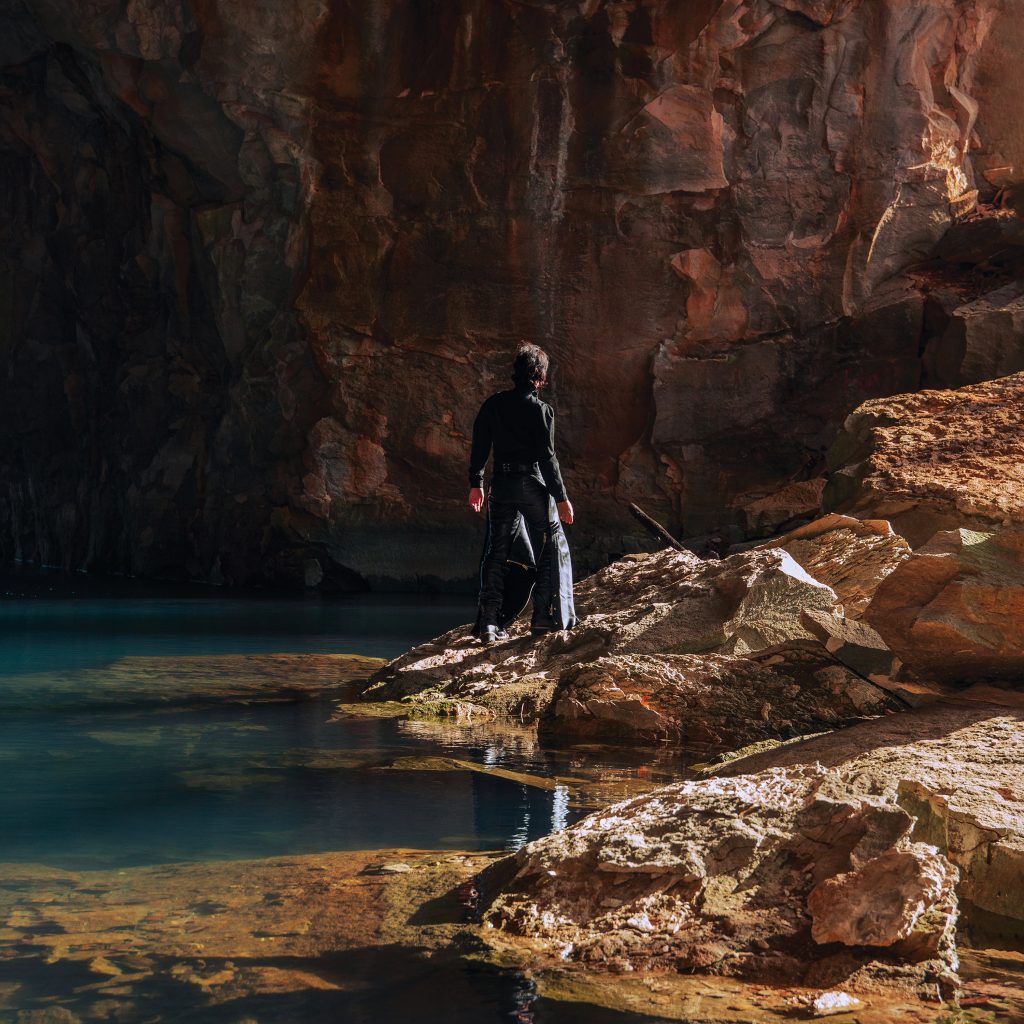
On the phone, Mancari doesn’t make light of their experiences, but they hold a powerful sense of being and humor. They divulged in their queer cowboy zombie costume idea for the shows leading up to Halloween next week. Their confidence and pride in their work is evident and well deserved.
Mancari has mastered the art of giving into their own self at their own pace. With a goal of creating safe spaces for other artists and music listeners, Mancari had to first create space for themself. Left Hand gave them the opportunity to banish fear and give in to what makes them who they are and love themself the way they so easily love others.
I wasn’t pretending / The last time we talked I almost thought I was going to die/ I couldn’t even see you / I couldn’t even feel anything anymore/ And all the things around me stopped existing / I couldn’t feel my face, I couldn’t feel my body / I lost it / I don’t want to be just trapped inside myself anymore / I don’t want to just pretend anymore, I want to live, I want you to live too
“I felt like I had this spirit that wanted to believe in me,” Mancari says. “Music has always been a form of escape for me—a space for expression and understanding.”
Mancari doesn’t consider themself religious, but they feel a spirituality in the way they make music.
“It’s a gift to be able to do this,” they say.
Sustaining the live music lifestyle
Heading out on what they consider their first official headline tour, Mancari has had their hands full, preparing for more than just rehearsals. They’re a true indie artist, handling the tour management, merchandise sales, travel routes and transportation—and everything behind the scenes of a live gig.
They’re tired and feel the stress of live music falling on their shoulders, but Mancari says it has enhanced them as an artist, instead of diluting the art.
“I have a better understanding and compassion for touring musicians,” Mancari notes.
They mention how artists—notably Jeff Rosenstock and Tomberlin—have recently brought more awareness to music venues taking a cut of band merch revenue, which sparked Live Nation’s partnership with Willie Nelson for the “On The Road Again” program. The aim is to end merchandise fees for artists and support developing artists.
Like other indie musicians, Mancari strives to raise awareness for artists and point out a “crumbling industry.” But it doesn’t stop there.
A studio of their own design
Mancari dreams of creating a nonprofit studio space for women, non-binary, queer and Black, Indigenous, People of Color (BIPOC) to record music and learn how to produce, engineer and master their own recordings. Community is important to Mancari, and they use it as a tool to liberate others, helping them achieve autonomy to pursue their art.
Mancari was inspired by their experience producing Left Hand, which is the first album they fully produced on their own.
“There are a lot of gate keepers in the industry, and I’m sure there are still people who would rather see a big-name producer attached to my work,” Mancari says. “But this was my chance to not be erased from history.”
Collaborating with writer and producer Daniel Tashian on the song Don’t Close Your Eyes, Mancari was also encouraged to track every instrument on the demos, finding themself behind the drums.
It was nerve-racking but also liberating to take on the task, they say. It was the first time they truly got to play around with different sounds in post-production, in a space that is often dominated by men. Now, they can use that skill to help others find their own voices.
In 2012, Mancari moved to Nashville to kickstart their music career but couldn’t get signed to any Tennessee-based labels. They eventually got a deal with Captured Tracks, a Brooklyn indie label. They’re the only Nashville-based artist on the roster. Mancari has found community in Nashville, but it still has a long way to go in embracing and uplifting queer artists.
And for Mancari, music is a team sport. “I played soccer growing up, which is like the gayest sport out there,” they laugh.
Right place, right time
On Left Hand, they enlisted friend and collaborator Brittany Howard (Bermuda Triangle, Alabama Shakes) on the opening track Don’t Even Worry; and Julien Baker (Boygenius) on Over and Over, a surprisingly upbeat, pop tune for the two.
There is something to the feeling / Head hanging out of the window / Being OK that we don’t know / We can have it like we used to / Over and over and over and over again
They weren’t even planning to have Baker on the album but knew they wanted another voice on Over and Over. The pieces all fell in line for it to be Baker, who ended up tracking and mastering their own vocals.
Mancari says it’s an example of “music being all about right place, right time.”
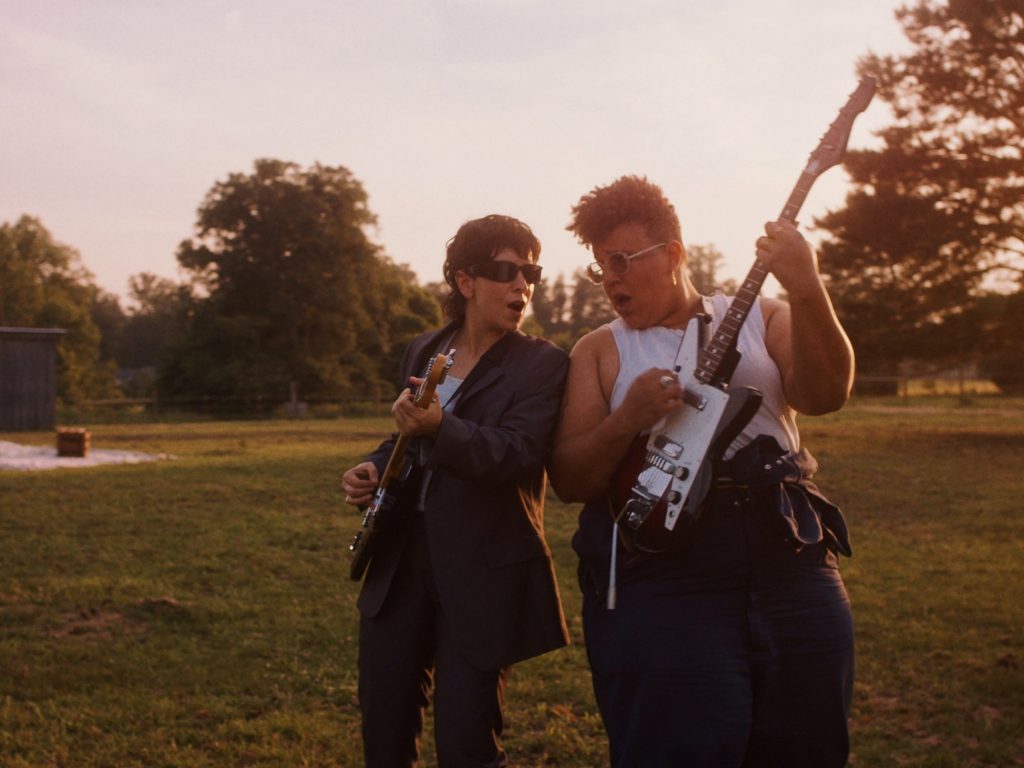
With Left Hand already being the most complex and vulnerable lyrical pieces of Mancari to date, they also didn’t want it to “sound like any other white indie album.” So, they dug into the influence of R&B music they grew up with, as well as listening to artists like Kehlani and SZA, who both have fresh takes on pop R&B.
Start with Over and Over off of Left Hand, or First Time off of The Greatest Part. Both are easily approachable, with groovy bass riffs, soft inviting vocals from Mancari and a positive energy.
Pay attention to how Mancari addresses complex emotions and specific moments of trauma through lyrics, but offers it with sonically inviting rhythms.
Kendall Polidori is The Rockhound, Luckbox‘s resident rock music critic. Follow her reviews on Instagram and Twitter. @rockhoundlb
